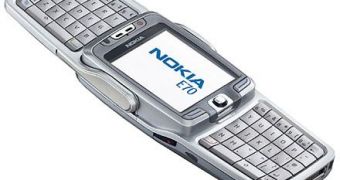Nokia, the Finnish mobile phone maker, and Qualcomm Incorporated, a leading provider of technology solutions, announced plans to work together in the future for the development of new advanced UMTS mobile devices that would be initially aimed at the North American market. At the same time, the two companies stated that the new handsets were expected to be running under the S60 software on Symbian OS, which is currently the most used platform for smartphones all around the globe.
Besides the S60 software on Symbian OS, the future UMTS devices will also use Qualcomm's advanced Mobile Station Modem (MSM) MSM7xxx-series and MSM8xxx-series chipsets, which are able to deliver cutting-edge processing performance, as well as leveraged mobile broadband capabilities. The companies also stated that the first devices to result from the partnership were expected to come to the market in mid-2010, and that they would be compatible with the forthcoming Symbian Foundation platform.
“Nokia is very pleased to be in discussions with Qualcomm around designing mobile devices that can benefit from the high level of integration found on MSM chipsets,” said Kai Oistamo, executive vice president, Devices, Nokia. “We are eager to demonstrate to the industry the possibilities that exist when innovative and open software is combined with advanced hardware solutions.”
Since both Nokia and Qualcomm are known as worldwide leading providers of advanced wireless technologies, their collaboration will certainly deliver impressive advancements in mobile performance, said Steve Mollenkopf, executive vice president of Qualcomm and president of Qualcomm CDMA Technologies. He also stated that people around the world would be able to benefit from the cooperation of the two makers.
Steve Mollenkopf expressed Qualcomm's excitement driven by the fact that joining forces with Nokia could provide “substantial synergies between S60 software and MSM chipsets.”

 14 DAY TRIAL //
14 DAY TRIAL //